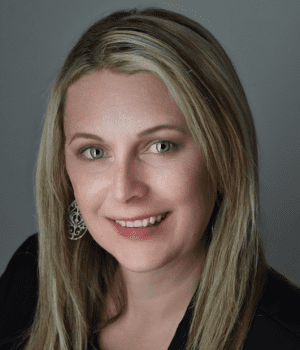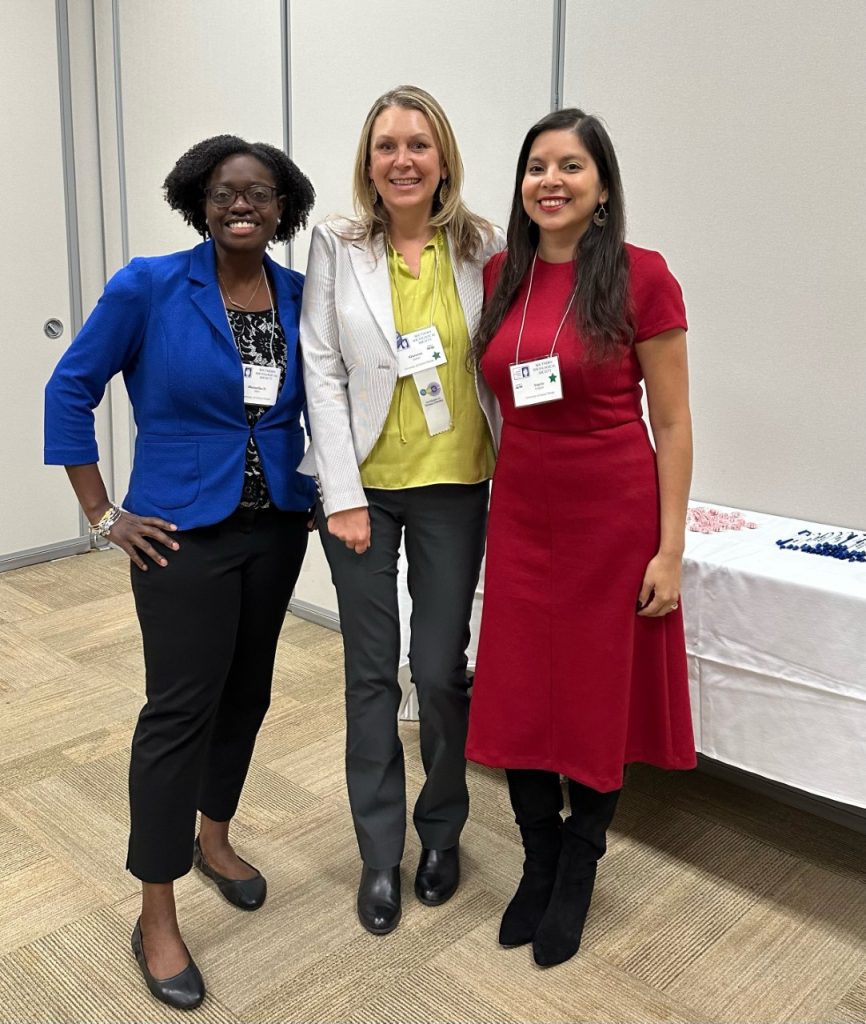Sociology Professor Researches Healthcare and Society
Sociology Professor Shannon Carter researches various topics in the healthcare industry that have a true impact on peoples’ lives. Read what she has to say about her research and learn what you can do with a Sociology degree.

Can you please describe your research areas?
My research focuses on health practices among different groups and their access, utilization and experiences with healthcare services. My research areas include infant feeding practices such as breastfeeding and human milk sharing, discursive and legislative restrictions on reproductive healthcare and healthcare experiences of transgender and nonbinary young adults. My work advances knowledge about the societal and institutional contexts in which people circumvent formal healthcare systems and public health recommendations, and the contexts that facilitate healthcare engagement.

What is the tangible impact of your research?
My research provides information to healthcare providers and policy makers about people’s health practices, healthcare needs and barriers and facilitators to healthcare utilization.
An example relates to infant feeding. New parents are typically knowledgeable about the health benefits of human milk, but many experience barriers when trying to breastfeed. Many parents turn to infant formula, but a growing proportion are obtaining human milk from their peers and utilizing the internet to connect with potential milk donors. This practice caused alarm among public health officials, culminating in statements from the U.S. Food and Drug Administration and American Academy of Pediatrics warning parents against the use of peer-shared milk.
In a collaborative project with Beatriz Reyes-Foster, Professor of Anthropology at UCF, we conducted an in-depth ethnographic study of peer human milk sharing to better understand how and why parents engaged in the practice despite official recommendations against it. We found that people participated in milk sharing because they firmly believed that “breast is best” and wanted to do everything possible to meet the breastfeeding recommendations of health organizations such as the American Academy of Pediatrics and World Health Organization. Contrary to popular beliefs that participants were either disobeying or unaware of warnings against milk sharing, we found that participants were knowledgeable about these guidelines, but they internalized an even stronger public health message that breast milk was the ultimate food for their babies. Consequently, milk sharing participants expended an extraordinary amount of physical and embodied labor to engage in peer milk sharing, while also implementing extensive safety practices.
Our research contributed knowledge that helped health policy makers and healthcare providers understand the actual practices involved in peer milk sharing, and the perceptions and experiences that lead parents to participate. This knowledge informs evidence-based guidelines from the Academy of Breastfeeding Medicine and American Academy of Nursing that recommend healthcare practitioners talk with parents about the relative risks and benefits of human milk sharing, mechanisms for maximizing the safety of the practice and possible alternatives.
Why did you decide to pursue Sociology?
I decided to pursue sociology because I wanted to learn more about different groups of people. I felt passionate about helping people who are treated unfairly in society, and I wanted to do my part to make the world a better place.
What can students do with a Sociology degree?
Students can do anything with a sociology degree! A sociology degree prepares students for the 21st century labor market, which is characterized by rapid change, increasing globalization and advanced technology. Students learn skills that employers are seeking, including how to conduct research and analyze data, effective written and verbal communication, critical thinking skills, fostering and implementing a global perspective and utilizing and adapting to new technology.
Graduates with a bachelor’s degree in sociology often work in social services, administration, human resources, community health, market research, public relations and much more. They work and become leaders in social service agencies, research centers and private industries. Our graduates are also prepared for graduate school, where many go on to become professors, researchers, lawyers, politicians and doctors.
In addition to the sociology major, our department offers several minors that facilitate students’ success on the job market and in graduate/professional school admissions. For example, our minor in medical sociology is instrumental in preparing students for the MCAT and successful admission to medical school. Our minor in crime, law and deviance is important for students pursuing careers in law, politics and corrections. Our minor in spatial sociology teaches students to use GIS technologies to examine social and environmental disparities, public health issues and crime patterns.
What career advice do you have for Sociology students?
My career advice for all students is to follow your passion. I see students have the most success when they are truly invested and passionate about their work.
